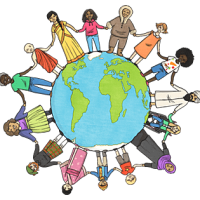Deadline: 27-Jun-25
A new call for expressions of interest has been launched to address critical gaps in health and social practices affecting out-of-school adolescent girls in Tanzania. This initiative aims to improve the overall well-being of vulnerable adolescent populations who face limited access to vital health services compared to their in-school peers.
The intervention targets regions where adolescent girls are underserved, particularly in areas such as nutrition, sexual and reproductive health (SRH), and protection from vaccine-preventable diseases. These girls often face barriers linked to misinformation, stigma, and lack of access to services. The project’s main focus is to introduce community-based strategies that promote behavior change, foster supportive environments, and empower girls with accurate knowledge and access to essential services.
Alongside promoting good nutrition and the uptake of the HPV vaccine, the initiative will build the capacity of service providers and engage with parents, boys, and community leaders to shift social norms. A crucial element of the program is also to connect girls with formal and non-formal education pathways, as well as social services, offering them a more comprehensive route to development and inclusion.
The goal is to directly reach 41,000 out-of-school adolescent girls between the ages of 9 and 14, while indirectly benefiting up to 1.4 million across the Katavi, Songwe, Mtwara, Dodoma, and Tabora regions. To achieve this, the program seeks proposals from experienced organizations that have demonstrated success in cross-sectoral initiatives involving adolescent health, education, community mobilization, and social behavior change (SBC).
Proposals will be assessed based on their relevance to the initiative’s goals, technical quality, local presence, experience with similar interventions, and the ability to demonstrate accountability to the communities they serve. Organizations with a track record of working with UN agencies and operating in the targeted regions are especially encouraged to apply.
This opportunity is designed to foster scalable, girl-centered models that not only improve access to SRH and nutrition services but also challenge misinformation and harmful cultural norms, while building community resilience and support systems.
For more information, visit UN Partner Portal.









































